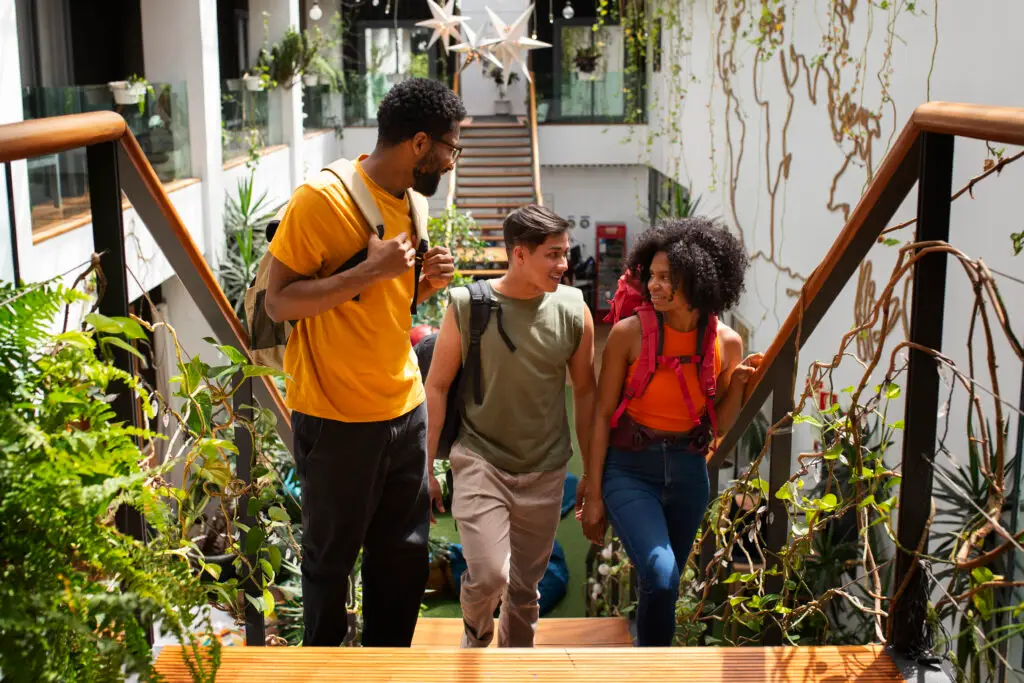Affordable Accommodation Options for African Students in Australia: A Complete Guide
Studying in Australia is a dream come true for many African students. But beyond tuition fees, one of the biggest financial commitments you’ll face is accommodation. Where you live not only determines your monthly budget but also your comfort, safety, and ability to settle into life abroad.
If you’re an African student planning your journey to Australia, this guide will show you the most affordable, realistic, and practical accommodation options, including tips for finding housing, budgeting wisely, and avoiding common pitfalls.
Why Accommodation Matters So Much
For international students, rent can account for 30–50% of monthly expenses. Choosing wisely can:
Save thousands of dollars annually
Help you live closer to campus and cut transport costs
Provide a community and support system that makes the transition easier
Reduce stress and allow you to focus on your studies

Popular Affordable Accommodation Options
1. University-Managed Housing (On-Campus)
What it is: Dormitories, colleges, or apartments run by universities.
Why it works: Convenience, proximity to classes, furnished rooms, utilities included.
Average cost: AUD $250–$400/week depending on city and facilities.
Pros: Safe, structured environment, ready-made student community.
Cons: More expensive than sharing off-campus, limited privacy, strict rules.
Best for: First-year students who want to adjust quickly with less stress.
2. Shared Apartments / Houses (Off-Campus)
What it is: Renting a room in a shared flat or house with other students.
Why it works: Lower costs split among housemates.
Average cost: AUD $150–$250/week, depending on city & distance from CBD.
Pros: Cheaper than on-campus, more independence, flexible contracts.
Cons: Less security than on-campus, must manage bills and chores.
Best for: Students seeking balance between affordability and independence.
3. Homestay with Local Families
What it is: Living with an Australian family in their home.
Why it works: Includes meals, utilities, and a cultural immersion experience.
Average cost: AUD $250–$350/week, meals included.
Pros: Supportive environment, practice English, no utility hassles.
Cons: Less independence, adapting to house rules.
Best for: Younger students, or those who value family-style living.
4. Purpose-Built Student Accommodation (PBSA)
What it is: Private companies offering student-only apartments (e.g., Scape, UniLodge, Iglu).
Why it works: Safe, fully furnished, modern amenities (Wi-Fi, gyms, study spaces).
Average cost: AUD $200–$500/week.
Pros: Student-focused, close to campus, all bills included.
Cons: Can be pricey, especially in Sydney and Melbourne.
Best for: Students who want convenience and don’t mind paying a bit more.
5. Temporary Accommodation (Short-Term Options)
Examples: Airbnb, hostels, budget hotels.
Why it works: Good while you search for something permanent.
Average cost: AUD $40–$100/day.
Pros: Flexible, no contracts.
Cons: Expensive long-term, uncertainty if extended.
Best for: Students waiting to inspect and secure long-term housing.
How to Save on Rent
Live a bit further from the city – Suburbs often have half the rent of central districts.
Share with others – A 3-bedroom house split three ways is far cheaper.
Use student housing platforms – Flatmates.com.au, Gumtree, Uni-student boards.
Negotiate rent – Especially in regional cities where competition is low.
Check utilities – Ensure electricity, water, and internet are included to avoid hidden costs.
Cost Comparison by City (Weekly Averages)
Sydney: AUD $250–$350 (shared housing)
Melbourne: AUD $200–$300
Brisbane: AUD $180–$250
Perth: AUD $170–$240
Adelaide: AUD $160–$220
Regional towns: As low as AUD $120–$180
Red Flags to Avoid
Unverified landlords asking for upfront payment without contracts
Too-good-to-be-true ads on Gumtree or Facebook Marketplace
Hidden fees for cleaning, furniture, or internet
Overcrowded apartments (illegal in many cities)
Quick Tips
Join African student associations at your university for leads on safe housing.
Always inspect the property (virtually if abroad) before paying deposits.
Choose housing close to public transport to save on commuting costs.
Have 3–4 weeks’ rent ready for bond + advance rent (a common requirement).
Finding affordable accommodation in Australia as an African student is absolutely possible; you just need to understand the options, costs, and smart strategies. Whether you choose on-campus housing, a shared apartment, or a homestay, remember that your comfort and safety come first.
By planning early and avoiding scams, you’ll not only save money but also build a supportive living environment that will make your study journey abroad far more enjoyable.
Achieve Your Migration Journey Today with Afrovo.
We are passionate about helping Africans unlock global opportunities.





